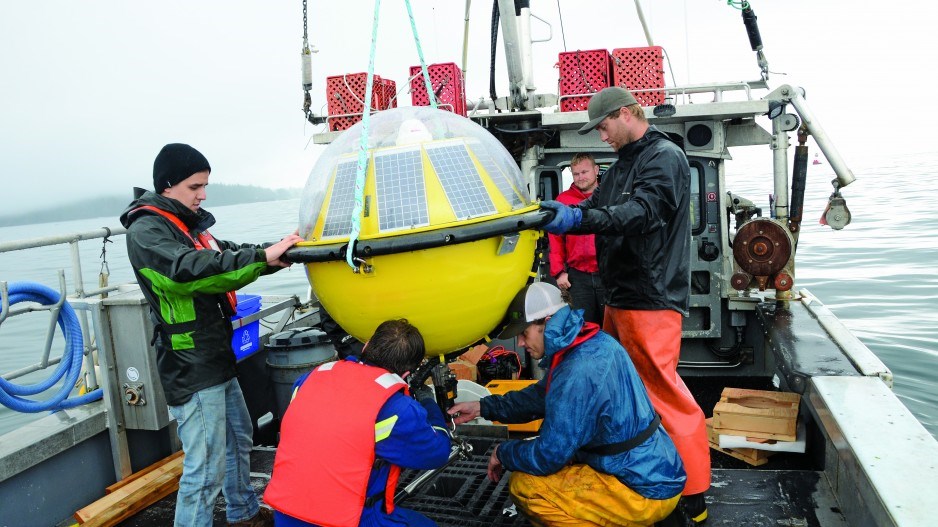Anyone who has walked along the beaches near Tofino in the wintertime can attest to the power of ocean storms, as massive waves explode on the shoreline.
A new study from the Pacific Institute for Climate Solutions quantifies just how much energy those waves contain, and recommends that B.C. take advantage of its world-class wave power to become a kind of “living lab” for ocean energy technology developers.
“We’ve always known there’s a great big resource out there in terms of a wave resource,” said Bryson Robertson, an adjunct professor in the department of mechanical engineering at the University of Victoria and co-author of Wave Energy: A Primer for British Columbia.
But until now, there has never been a comprehensive inventory done to identify just how much wave energy there is and which spots are best suited for wave power generation.
The new report identifies the west coast of Vancouver Island as the ideal place to test wave energy conversion technology.
“We have an incredible resource that is matched by only a few other countries around the world,” Robertson said. “This report really focuses on trying to provide an easily understood document for policy-makers and the general public to identify both the opportunities and the challenges for wave energy in British Columbia.”
Those challenges include the cost of wave energy conversion, which is staggering compared with B.C. hydroelectric power, and which is why Robertson is not recommending that it be pursued as a utility power source. Instead, he sees it as a technology research and development opportunity.
Wave energy is not to be confused with tidal energy. B.C. has that too, and there have been some attempts here at demonstration projects. Whereas tidal energy comes from the twice-daily movement of tides, wave energy comes from storms at sea.
Storms in the Pacific Ocean, even thousands of kilometres away, transmit their energy in the form of massive waves, which, when they hit the B.C. coast, can be used by an assortment of technologies under development to move pistons or cylinders to turn motors and generate electricity.
But Robertson said it’s wave energy, not tidal, where B.C. has the greatest prospects. Atlantic Canada has the best tidal resources in North America – notably in the Bay of Fundy – whereas Vancouver Island has some of the best wave energy potential in the world.
“B.C.’s competitive advantage is in wave,” Robertson said. “We do have tidal energy resources, without a doubt, but there are other places in the world that have tidal energy resources that are better than us, particularly on the other side of our own country.”
There are at least five wave energy technologies under development, and two companies have been exploring B.C.’s wave energy potential – Victoria-headquartered Global Energy Horizons Corp. and Australia’s Carnegie Clean Energy (ASX:CCE).
Compared with wind, solar and hydro energy, tidal and wave energy are expensive, costing between four and 14 times more than energy generated in B.C. through hydro and wind power.
That’s partly because it is a nascent technology. But it’s also because any machine that must be placed in the ocean – whether it is an offshore oil drilling platform or a tidal energy system – comes with a whole host of engineering and operational challenges.
Because B.C. is blessed with abundant and relatively cheap hydro and wind power, it may never need tidal or wave power. But because B.C. has such ideal wave energy resources, Robertson said, there are opportunities for B.C. to support wave energy technology companies.
Some ocean energy companies have set up shop in B.C., then left when it became apparent there was no market for the technology here.
But there doesn’t have to be a domestic market for wave energy power to develop an ocean energy technology sector, Robertson said.
He said B.C. could start by designating certain areas off Vancouver Island as test sites, and provide some basic infrastructure, such as a connection to the grid that developers could tie into for demonstration projects. The province could also promote pilot projects in remote communities on Vancouver Island that currently get their power from diesel generators.




